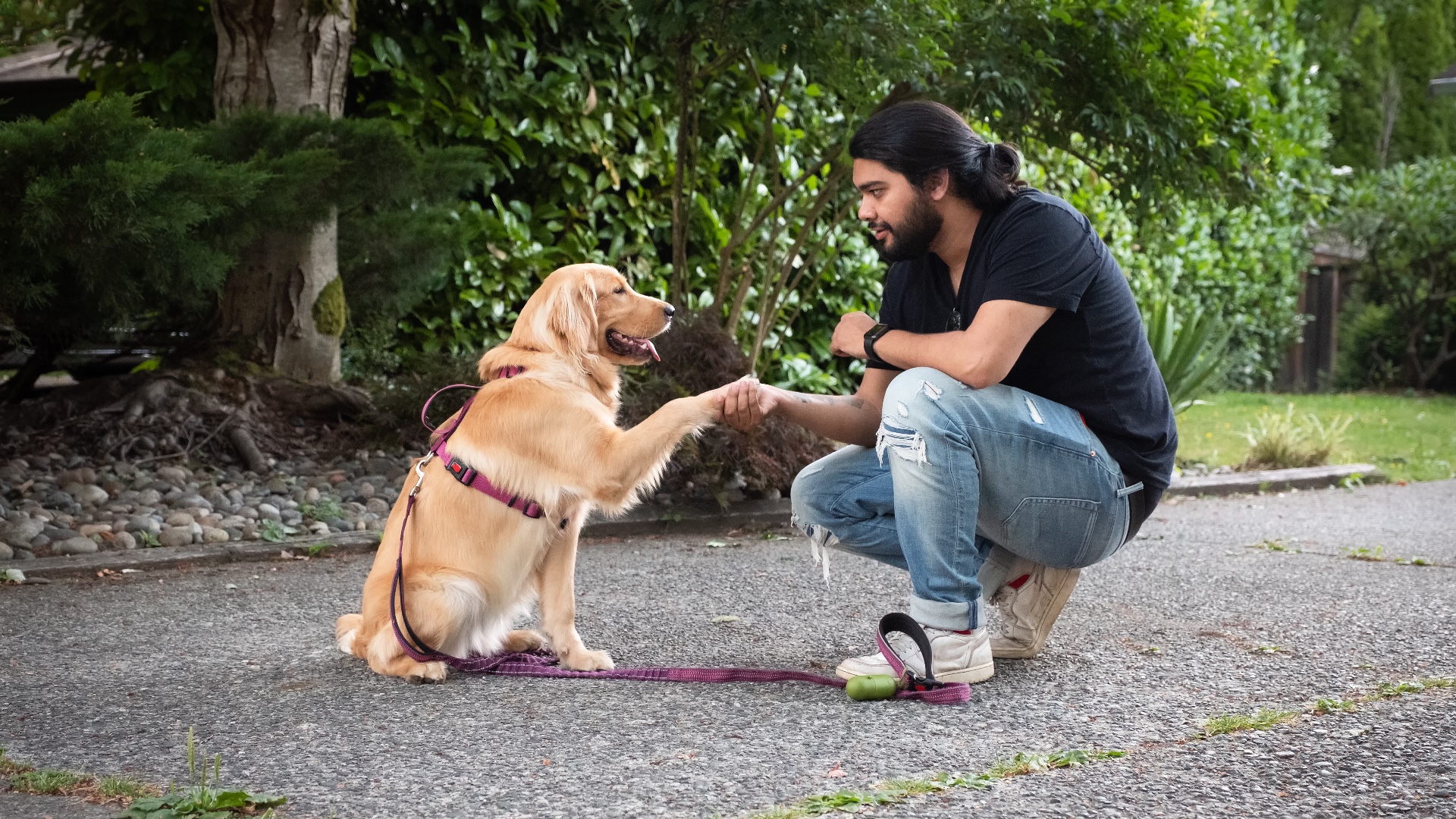
Let's be honest — dog training is no walk in the park! Even armed with the best dog treats, there are going to be days when your dog takes one step forward and two steps back, which will likely leave you feeling more than a little frustrated.
The good news is, it's not the setbacks in your training that matter but how you choose to handle them.
Whether you're trying to avoid the most common loose leash walking mistakes or you're working hard to figure out how to stop a dog from jumping up, it will take your dog time to learn what's expected of them.
That being said, expert dog trainer and behaviorist Nikki Mather says your dog's progress can be helped enormously by you ensuring you're bringing the right qualities to your training sessions.
Read on as Mather outlines the five qualities all pet parents need to help their dog's smash their training goals...
1. Understanding: "In order to train your dog effectively, you need to understand your dog, their body language and their behavior first. What is the function of their behavior? WHY is it happening?" says Mather.
2. Compassion: "We get it, sometimes our dog’s behavior is really infuriating. It’s tough sometimes not to lose our temper, but compassion in dog training is vital to building a relationship between yourself and your dog based on trust and love."
3. Consistency: "You’ll hear this one all the time… training takes TIME. Behavior modification (for any living animal, us included!) takes time. You need to keep working at it, and don’t expect results overnight," explains Mather.
4. Patience: "Sometimes your dog will ‘get it wrong’. They’ll make a choice that won’t be our favorite, they’ll bark, they’ll ignore your recall, they’ll pull you toward the sniff. Just remember, they are learning, so be patient with them."
5. Resilience: "Dog training takes a lot of resilience," says Mather. "You’ll have to deal with people's opinions all of the time. You’ll have to handle rude comments made by strangers. You’ll have to speak up for your dog sometimes despite offending people. It’s tough to handle, but we have to remember that our only focus is helping our pups!"
If you feel you tick all of Mather's boxes above but aren't seeing the positive progress with your dog's training that you'd like, we recommend reaching out to a professional for some 1:1 support.
Just be sure to check out our guide to how to spot dog trainer red flags to ensure the person you choose has the appropriate qualifications and uses positive training methods.







